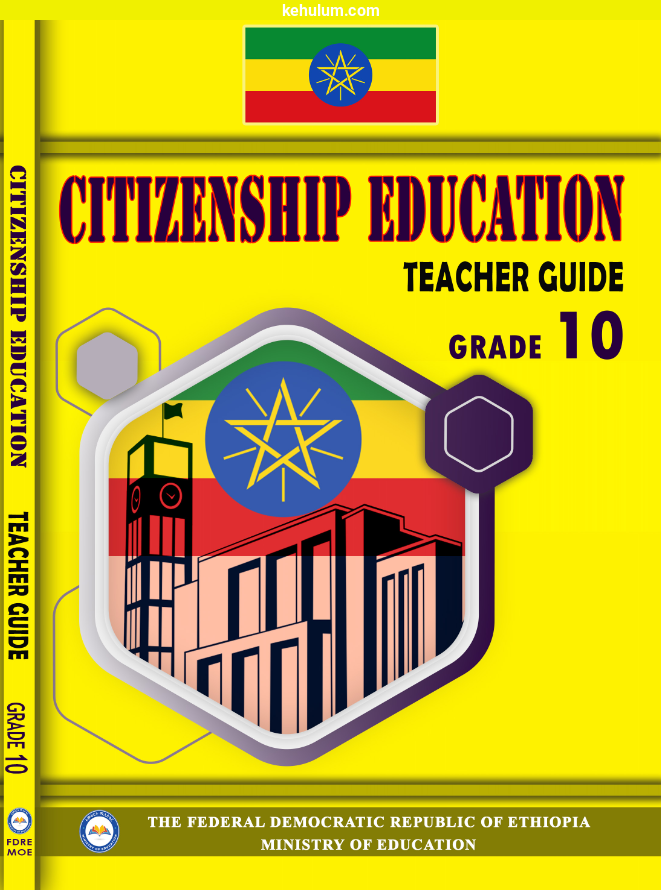Advertisement
Related grade 9 new curriculum Teacher's Guide
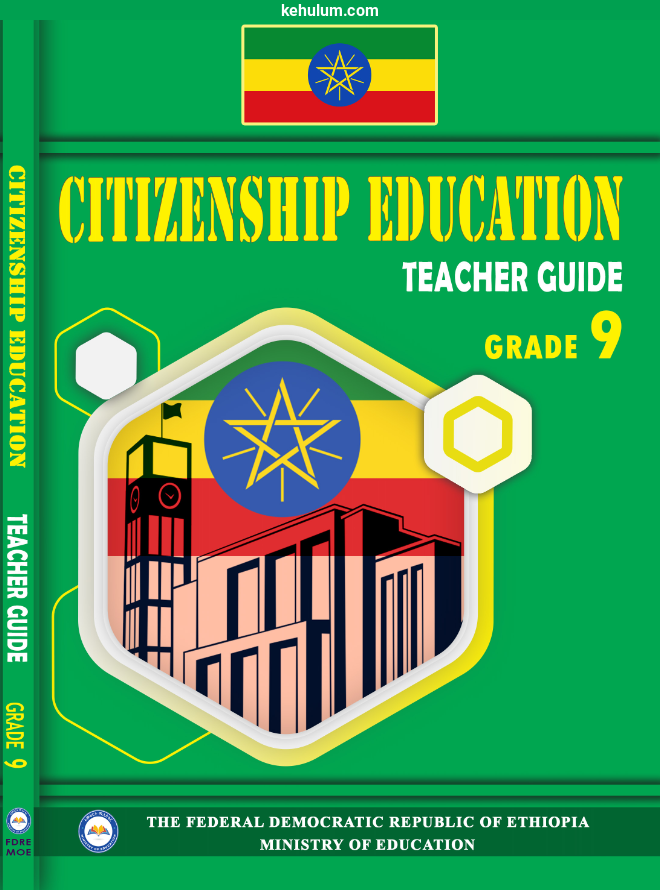 Citizenship EducationTeacher's Guide
Citizenship EducationTeacher's Guide
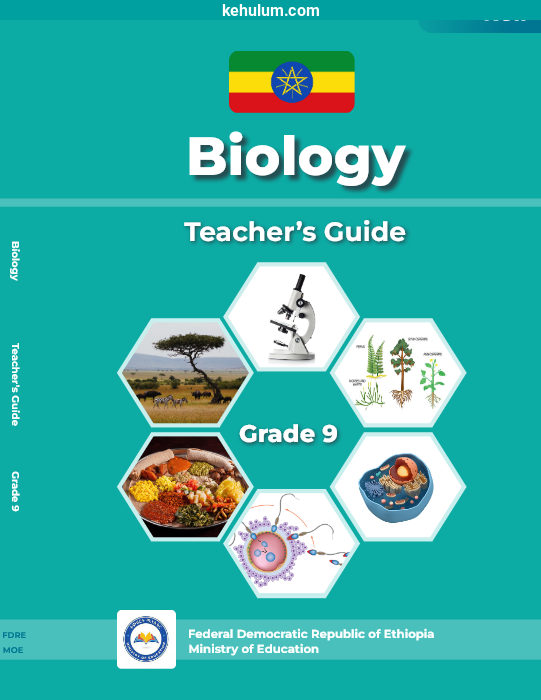 BiologyTeacher's Guide
BiologyTeacher's Guide
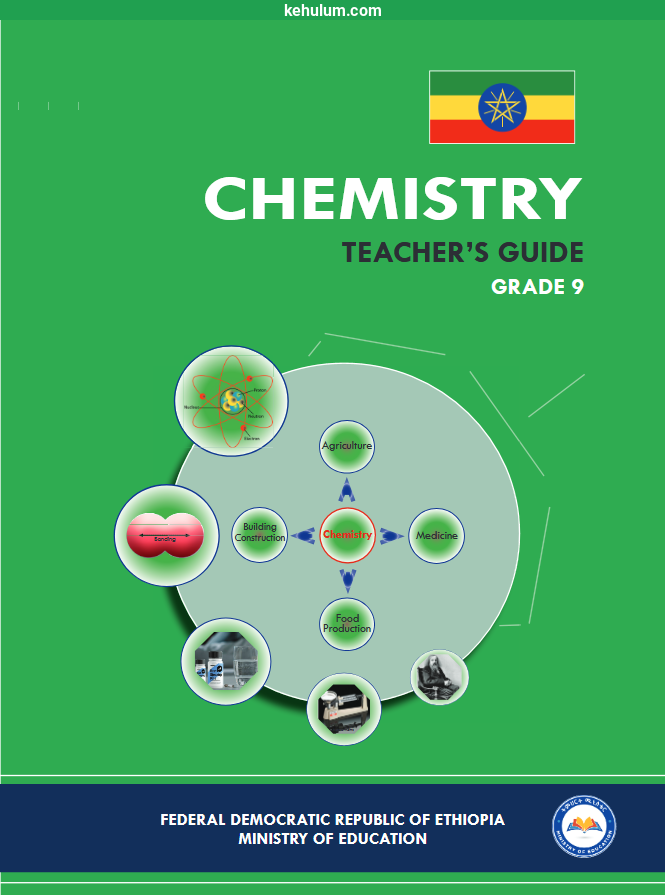 ChemistryTeacher's Guide
ChemistryTeacher's Guide
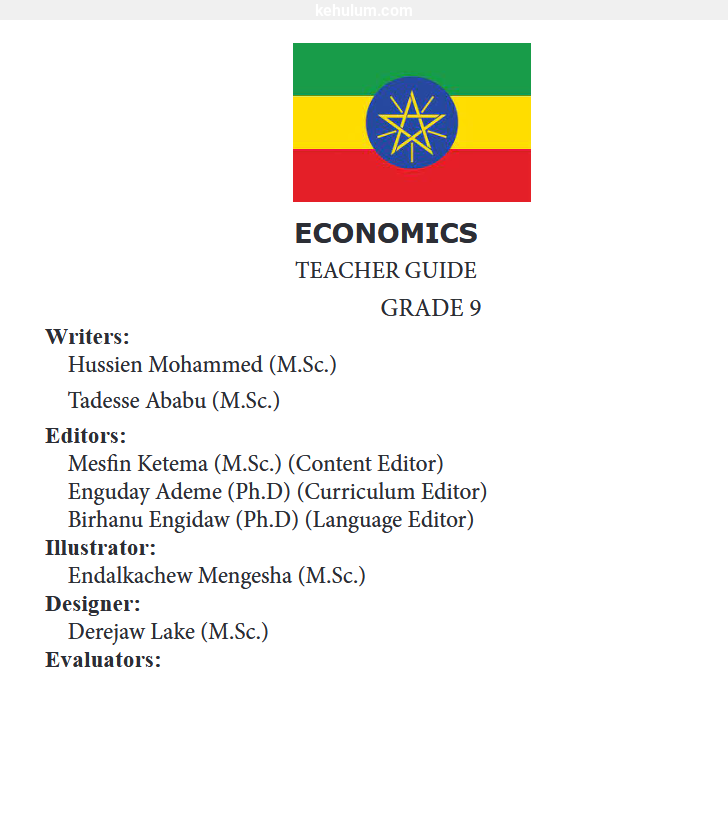 EconomicsTeacher's Guide
EconomicsTeacher's Guide
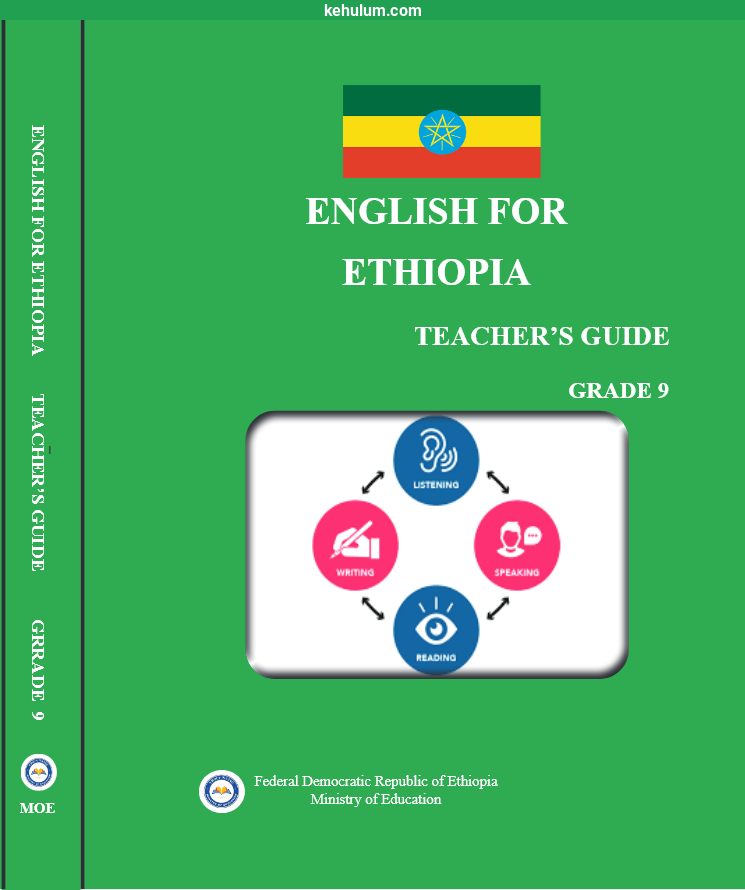 English For EthiopiaTeacher's Guide
English For EthiopiaTeacher's Guide
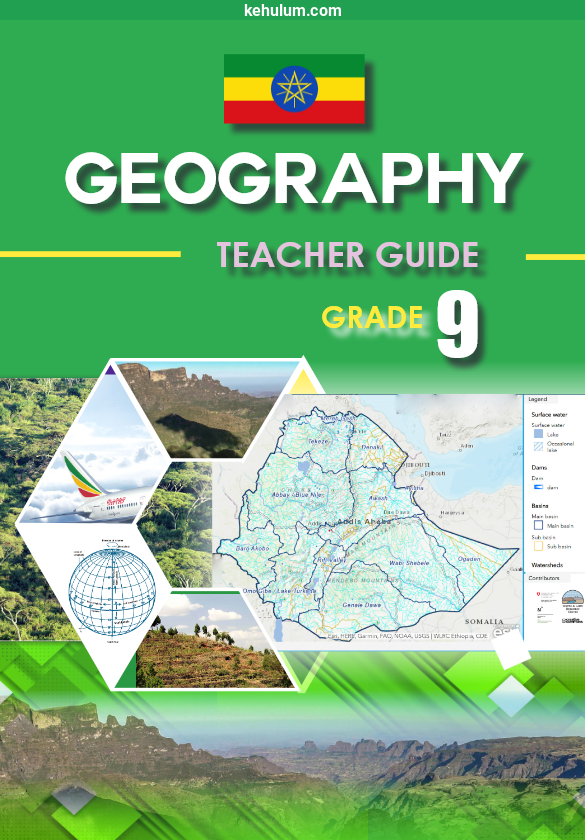 GeographyTeacher's Guide
GeographyTeacher's Guide
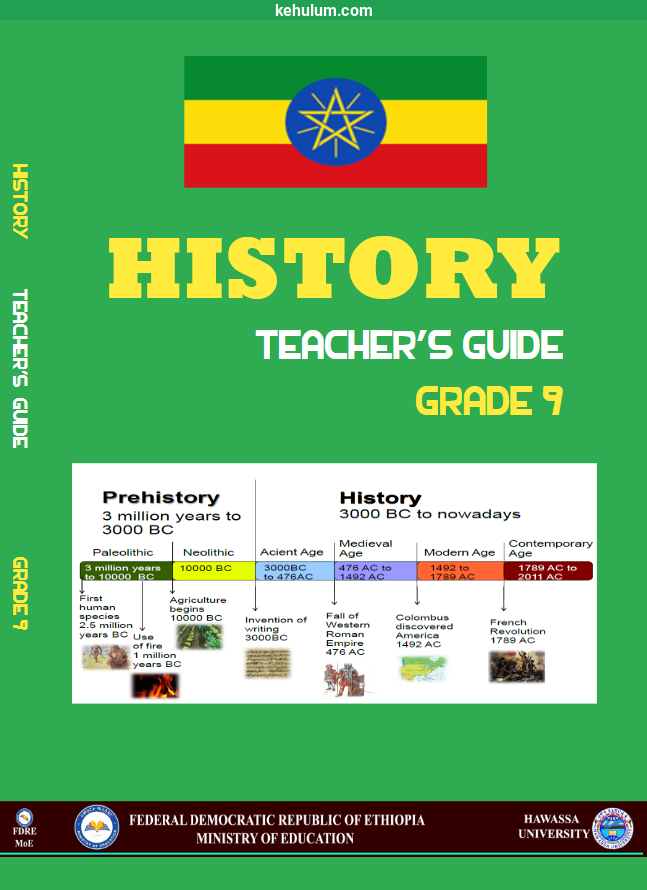 HistoryTeacher's Guide
HistoryTeacher's Guide
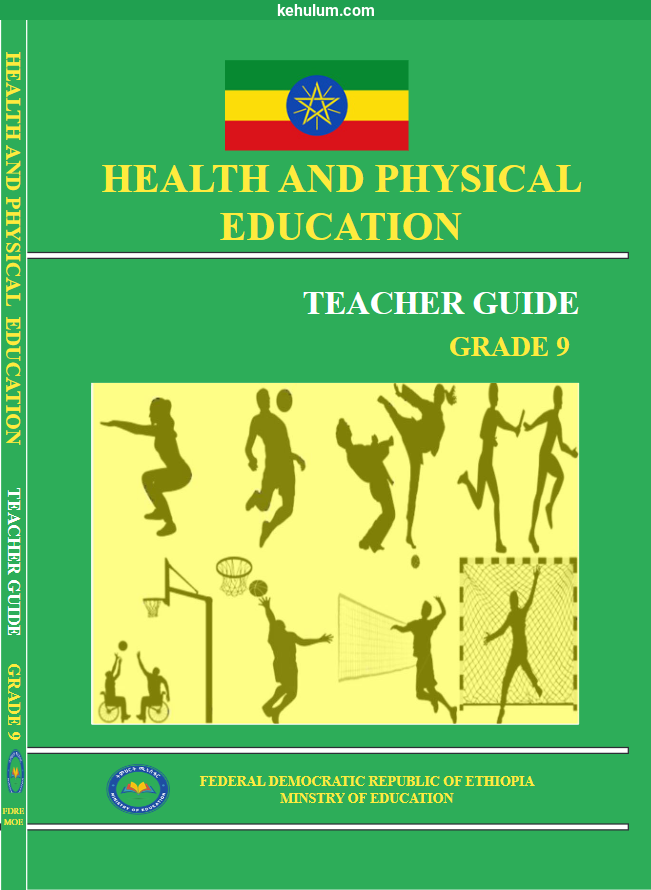 HPETeacher's Guide
HPETeacher's Guide
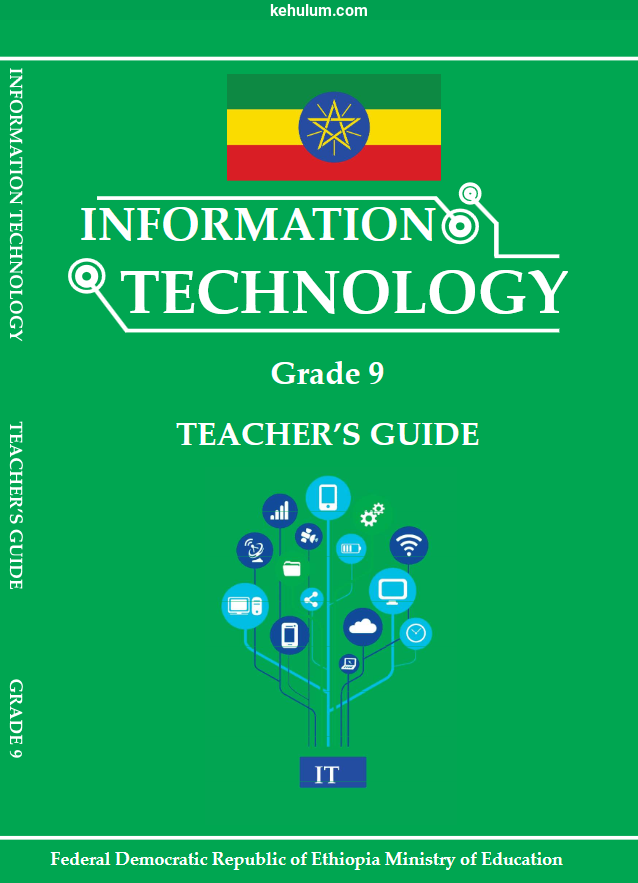 Information Technology ITTeacher's Guide
Information Technology ITTeacher's Guide
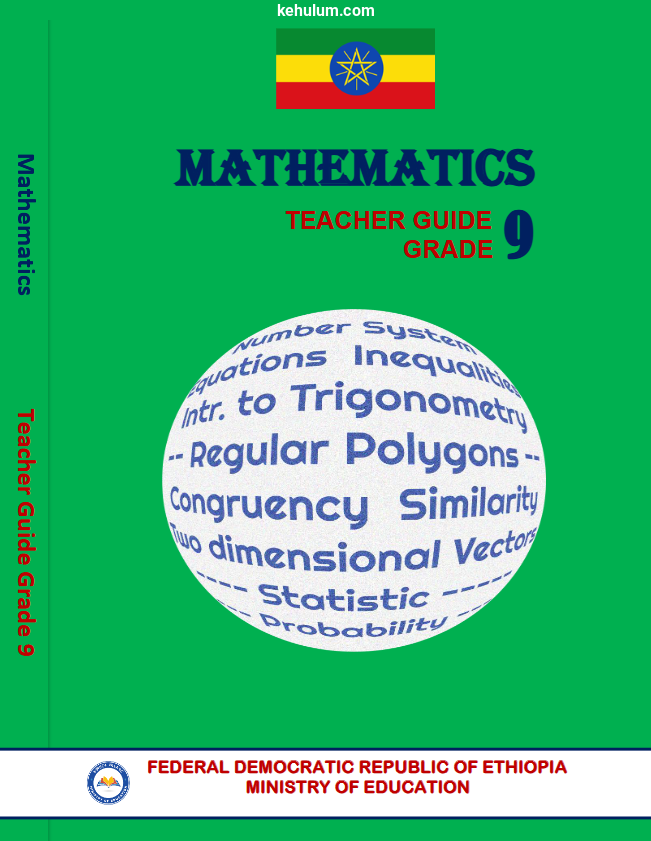 MathematicsTeacher's Guide
MathematicsTeacher's Guide
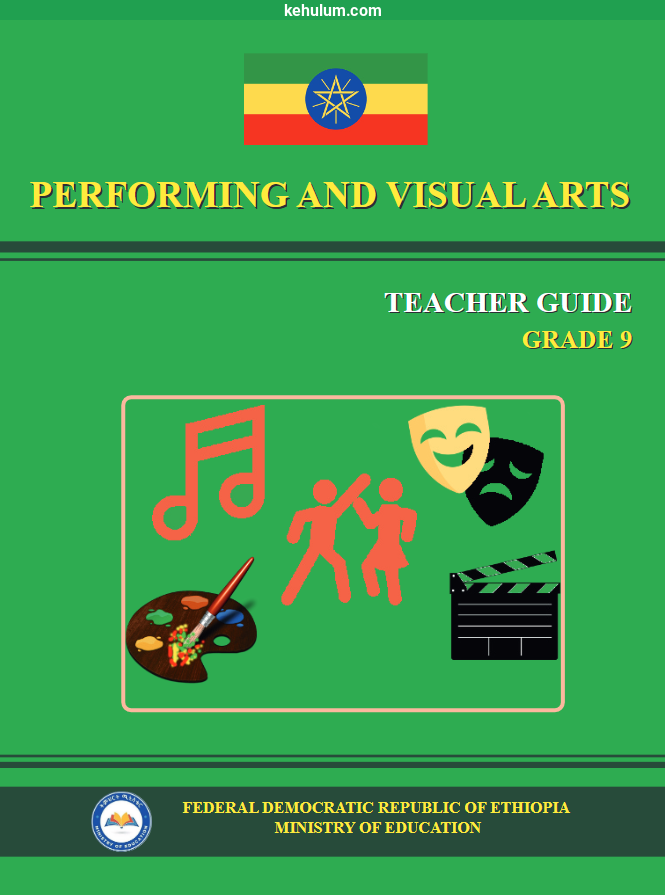 Performing and Visual Art PVATeacher's Guide
Performing and Visual Art PVATeacher's Guide
 PhysicsTeacher's Guide
PhysicsTeacher's Guide
Download the Ethiopian New Curriculum Grade 9 Citizenship Education Teacher’s Guide PDF
Download the Ethiopian New Curriculum Grade 8 General Science Teacher’s Guide PDF for free from kehulum.com. This comprehensive teacher’s guide is designed to support teachers in effectively delivering the new national curriculum. It offers practical lesson plans, detailed experimental activities, and clear explanations to enhance classroom teaching of science topics. Covering key scientific concepts from atomic theory to ecosystems, the guide integrates theoretical knowledge with hands-on instructional strategies, enabling teachers to foster inquiry, critical thinking, and scientific literacy among their students.
Teacher’s Guide Summary
- Country: Ethiopia
- Publisher: MoE
- Published Year: 2022
- Subject: Citizenship Education
- Grade Level: Grade 9
- Curriculum type: Ethiopian New Curriculum
- Book Type: Teacher’s Guide
- Total Units: 8 units
- Total Pages: 164
- File Size: 3 MB
- File Format: PDF
Writers
The Teacher's Guide is written by:
- Bizuayehu Daba Feyisa
- Kaso Teha Nura
Chapters Overview
his Teacher’s Guide provides 8 well-structured units designed to help teachers instill ethical behavior, civic values, and digital responsibility in Grade 9 students. The content aligns with Ethiopia’s reformed national curriculum and encourages application to real-life social, cultural, and technological settings.
Unit 1: Ethical Values
This unit introduces the meaning and relevance of ethics in civic life. Teachers are supported in guiding students to identify core ethical values like honesty, justice, respect, and responsibility. Real-world classroom discussions help relate these values to everyday decision-making and public behavior. The unit also includes applied ethics scenarios for deeper classroom engagement.
Unit 2: The Culture of Using Digital Technology
This timely unit equips teachers to help students develop a responsible digital culture. It explores the purpose and influence of digital technology in daily life, social behavior, and communication. Teachers receive strategies to explain cyber ethics, digital etiquette, and online safety. It also highlights the role of digital media in shaping identity and community interactions in modern Ethiopia.
Unit 3: Constitutionalism
In this unit, teachers explain what constitutions are and why they matter. The guide outlines the concept of constitutionalism, including checks and balances, rule of law, and citizens' rights and duties. Ethiopian constitutional history is covered to help students understand governance evolution. Teachers are provided with discussion frameworks comparing local and international constitutional models.
Unit 4: Understanding Indigenous Knowledge
This unit emphasizes the value of local traditions and community wisdom. Teachers help students recognize the role of indigenous knowledge systems in civic life—such as dispute resolution, community leadership, and environmental protection. It also highlights the importance of preserving cultural identity through oral history and local social institutions.
Unit 5: Multiculturalism in Ethiopia
Focusing on Ethiopia’s rich cultural landscape, this unit introduces teachers to concepts of culture and multiculturalism. Teachers learn to explore diversity in language, religion, customs, and art. The guide presents multiculturalism as a strength for civic unity, and offers tools to promote mutual respect and inclusion within classrooms and communities.
Unit 6: National Unity Through Diversity
This unit builds on the previous one by introducing practical civic frameworks for unity. Teachers are supported in discussing national identity, shared values, and mechanisms for managing diversity peacefully. Through case studies and collaborative activities, this unit prepares students to appreciate Ethiopia’s pluralistic society while nurturing a strong sense of national belonging.
Unit 7: Problem Solving Skills
A skills-based unit that teaches effective decision-making and critical thinking. Teachers are guided on how to foster constructive habits like analysis, collaboration, and solution-oriented thinking. The unit includes role-play, real-life problem scenarios, and strategies for empowering students to become community change-makers.
Unit 8: Ethiopia’s Foreign Relations in East Africa
The final unit explores Ethiopia’s role in the region and global diplomacy. Teachers introduce concepts such as diplomacy, peacekeeping, trade relations, and foreign policy tools. It emphasizes regional cooperation and Ethiopia’s influence in the Horn of Africa through AU, IGAD, and bilateral relations. Teachers are provided with activities to spark student interest in current international issues.
Advertisement
Related grade 9 new curriculum Teacher's Guide
 Citizenship EducationTeacher's Guide
Citizenship EducationTeacher's Guide
 BiologyTeacher's Guide
BiologyTeacher's Guide
 ChemistryTeacher's Guide
ChemistryTeacher's Guide
 EconomicsTeacher's Guide
EconomicsTeacher's Guide
 English For EthiopiaTeacher's Guide
English For EthiopiaTeacher's Guide
 GeographyTeacher's Guide
GeographyTeacher's Guide
 HistoryTeacher's Guide
HistoryTeacher's Guide
 HPETeacher's Guide
HPETeacher's Guide
 Information Technology ITTeacher's Guide
Information Technology ITTeacher's Guide
 MathematicsTeacher's Guide
MathematicsTeacher's Guide
 Performing and Visual Art PVATeacher's Guide
Performing and Visual Art PVATeacher's Guide
 PhysicsTeacher's Guide
PhysicsTeacher's Guide
Frequently Asked Questions
How many units are covered in the Ethiopian Grade 9 Citizenship Education new curriculum teacher's guide?
The Teacher's Guide supports a total of 8 instructional units based on the new Ethiopian curriculum.
How many pages are in the Ethiopian Grade 9 Citizenship Education new curriculum teacher's guide?
The Teacher's Guide contains 164 pages filled with detailed instructional strategies.
What is the file size of Ethiopian Grade 9 Citizenship Education new curriculum teacher's guide?
The Teacher's Guide PDF file size is 3 MB, easily accessible on all devices.
When is the Ethiopian Grade 9 Citizenship Education new curriculum Teacher's Guide published?
The Teacher's Guide was published in 2022.
How do I download the Ethiopian Grade 9 Citizenship Education new curriculum Teacher's guide PDF for free?
Simply click the download button on the page
Is the Grade 9 Citizenship Education teacher's guide available for both old and new curriculum?
Yes, kehulum.com provides teacher guides for both Old and New Ethiopian curriculum.
Related new curriculum citizenship education Teacher's Guide
Advertisement

